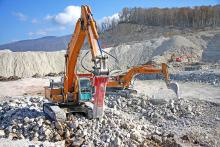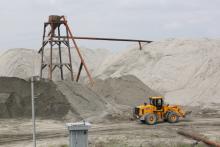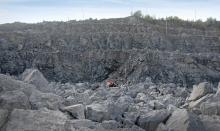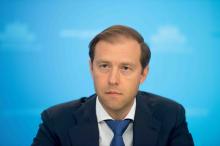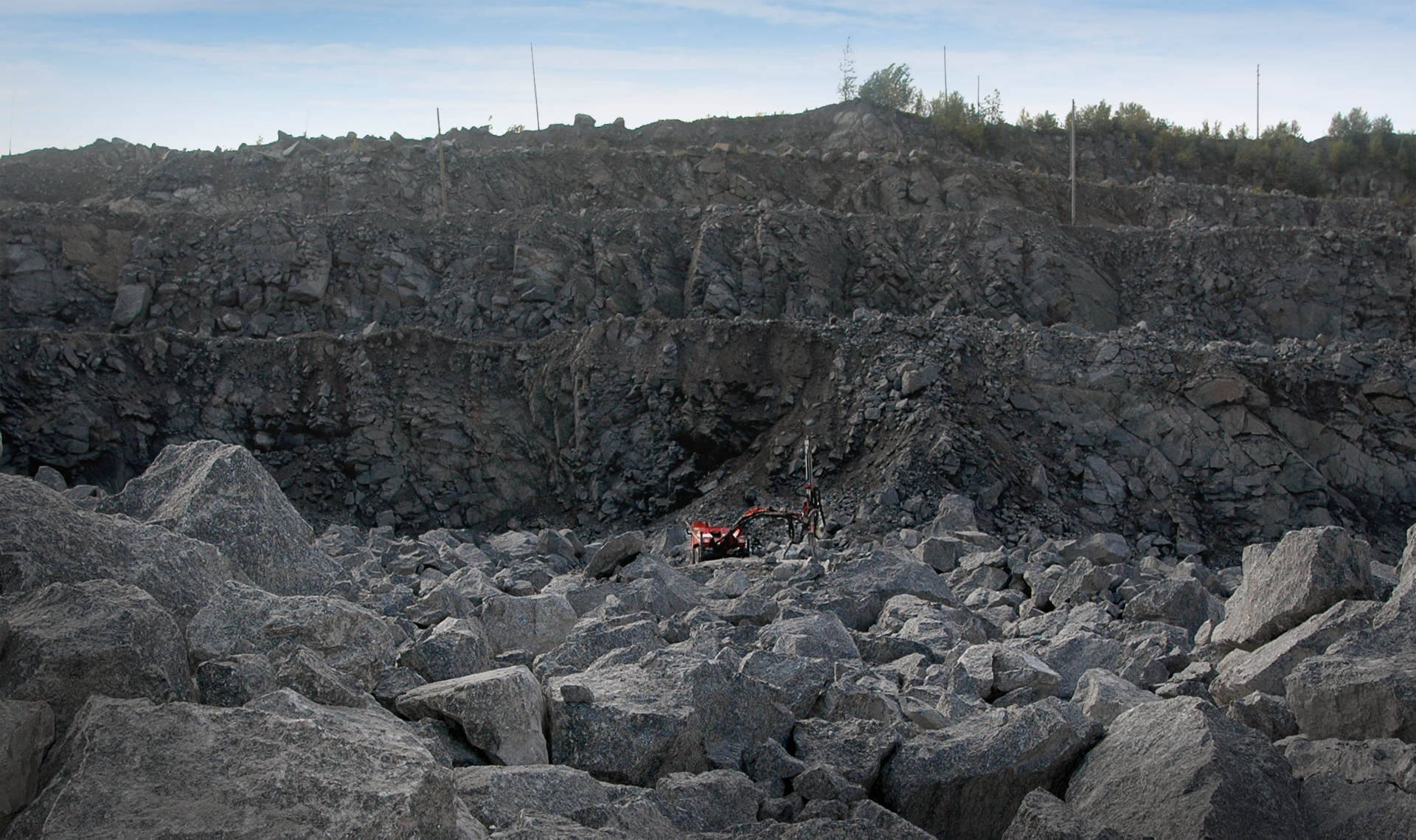
Russia is “significantly increasing” its aggregates exports to western markets in 2018 after the country’s government and leading aggregates producers are said to have collaborated to facilitate exports and make them more profitable. Eugene Gerden reports.
Recent statements by the press service of the Russian government and presidential administration, talking of new pro-export conditions agreed with aggregates producers, have been welcomed by quarry operators and contractors nationwide.
Particular focus is on significantly increasing Russia’s aggregates exports to European Union states, with Russia’s minister of Industry and Trade, Denis Manturov, stating that EU state consumers are ready to pay more than domestic consumers for Russian aggregates and other construction materials.
The planned huge increase in these exports will involve some of Russia’s largest aggregates production facilities. These sites are primarily located in the North West of the country, particularly within the St. Petersburg region.
The Russian government considers both St Petersburg and Kaliningrad to be ideal locations for the export of aggregates and construction materials to the EU, bearing in mind that they are the largest Russian seaports on the Baltic Sea, and in the case of St Petersburg, one of the largest in the world.
The bulk of the initial increase in exports will be directed to Poland, Germany and some Nordic states. In the case of Poland, the first supplies have already been received. The growth in export volumes from St. Petersburg, one of Russia’s most economically developed regions, began in March 2018.
According to some sources in the Russian Ministry of Industry and Trade, the total volume of initial stage aggregates exports may reach 400,000-450,000tonnes. Crushed stone will form the majority of it.
In addition to the continental EU market, the Russian government and some of the country’s leading aggregates producers are hoping to secure high export volumes to the UK. Britain has already become one of the largest buyers of Russian cement.
According to a spokesman for Denis Manturov, deliveries of Russian aggregates to the UK will be made in moisture-free packaging, which is tailor-made for UK consumers because it takes the country’s climate into account.
Russia’s key aggregates producers believe regular exports to the West could be a good opportunity for them to increase their profits, which have been significantly hit in recent years.
Due to Russia’s financial crisis, domestic aggregates demand, including from major consuming industries such as roadbuilding, has markedly declined. This has seen the majority of Russia’s leading aggregates producers redirecting their supplies to markets in former Soviet states. Furthermore, the devaluation of Russia’s rouble currency has made exports to foreign markets more profitable for national producers.
Analysis by Russia’s Ministry of Industry and Trade suggests that increasing transport costs within Russia may prevent full implementation of the big aggregates export drive.
However, Mikhail Sneg, director for Export Policy and Analysis at the Russian Export Center (REC), a state company responsible for facilitating Russian goods exports, said the Russian government plans to subsidise part of domestic producers’ transport costs which are linked to meeting greater export demand. The REC will also assist with logistics around the shipping of Russian aggregates along with securing domestic aggregate producers the necessary certification for selling their products into foreign markets.
REC statisticians believe Russian aggregates can attract great demand in the EU market. They see EU consumers as regular switchers from one product to another, especially if they perceive they are not getting value for their money.
According to sector experts, Russia’s newly established National Association of Manufacturers of Building Materials, Products and Structures will be keen to lobby foreign markets on behalf of its aggregates producers.
Some major global players currently operating in Russia, such as
A spokesman for Denis Manturov said the industry has a good chance of increasing its exports over the long-term. This, he said, was due to consolidation of different-sized companies across the board and the emergence of large-scale vertically-integrated holdings, specialising in the manufacture of a wide range of aggregates and construction materials.
Manturov, himself, added: “The increase of exports of Russian aggregates and construction materials will be part of a global trend for the consolidation of cement and aggregates assets. To date, the majority of the world’s largest cement producers have already established themselves as major aggregates and concrete producers. Currently there is a process of consolidation of aggregates business in Russia and we understand it could pose a threat of the emergence of monopolies, which could dictate their conditions to major consumers. However, on the other hand, the existence of such large companies may guarantee regular exports of Russian aggregates to abroad, as they have enough financial resources for the implementation of these plans.”
As part of the move to significantly increase aggregates exports, Russian producers are planning more active exploration of new sites and the development of existing fields. This mostly applies to crushed stone and gravel fields, the current number of which in Russia is relatively small. According to data from the Ministry of Industry and Trade, the majority of the country’s existing crushed stone and gravel fields were discovered during the Soviet era.
The significant increase in aggregates production for export markets will also be achieved by raising the technical level of the majority of the industry’s enterprises. However, not all believe this will be possible. The Russian Union of Industrialists and Entrepreneurs, a public association which represents Russia’s leading aggregates producers, said the current situation in the industry remains complex, which may hinder the full implementation of the ambitious export plans. According to the union, there is a constant shortage of equipment in the industry, while many producers do not have enough money to buy abroad.
Overall, though, the fact that the Russian state wants aggregates exports to increase and is willing, in part, to subsidise some of the costs associated with increased production levels, means that there is likely to be a sharp increase in the volume of quality Russian-produced aggregates in circulation in the West over the coming years.

